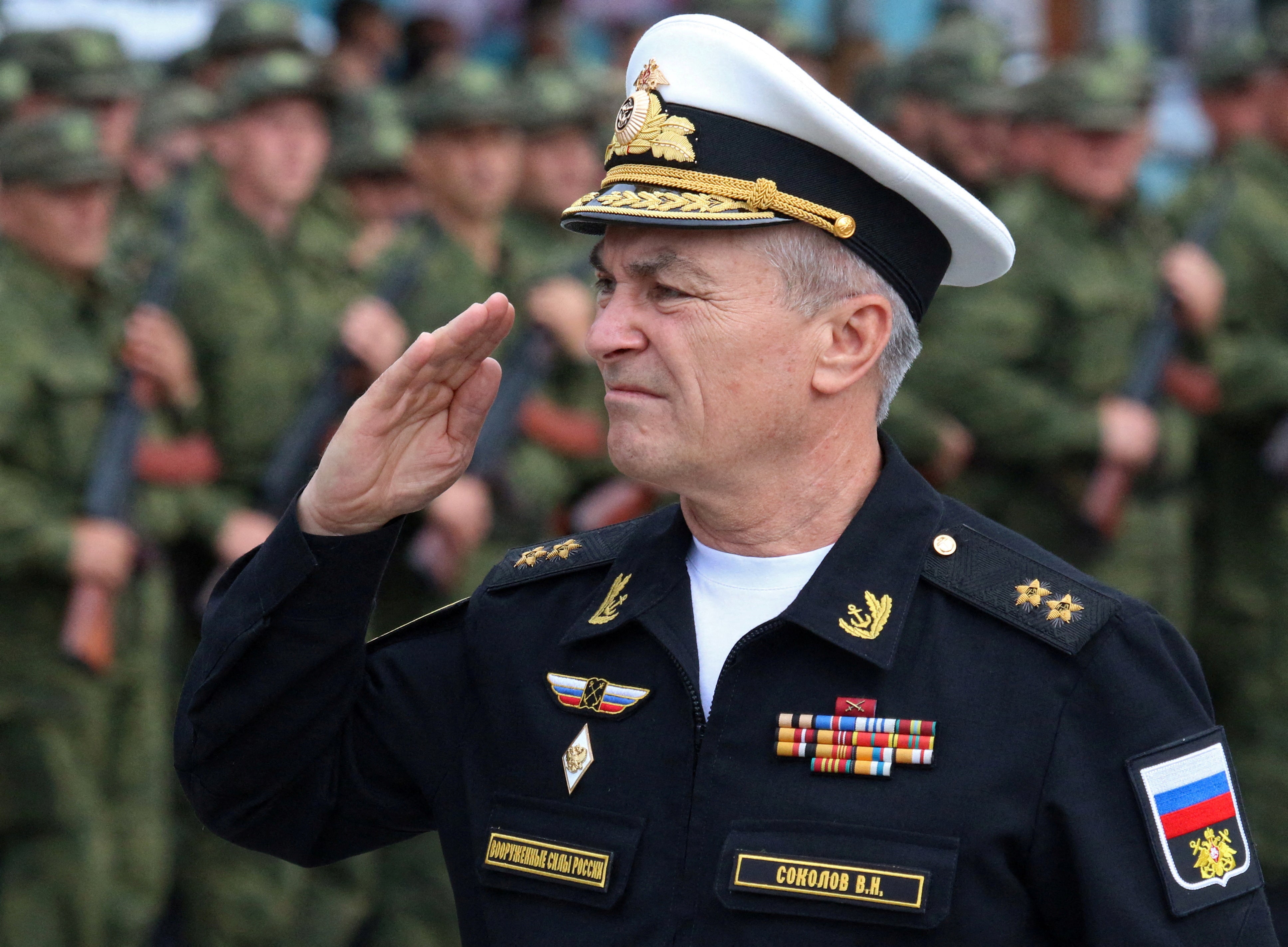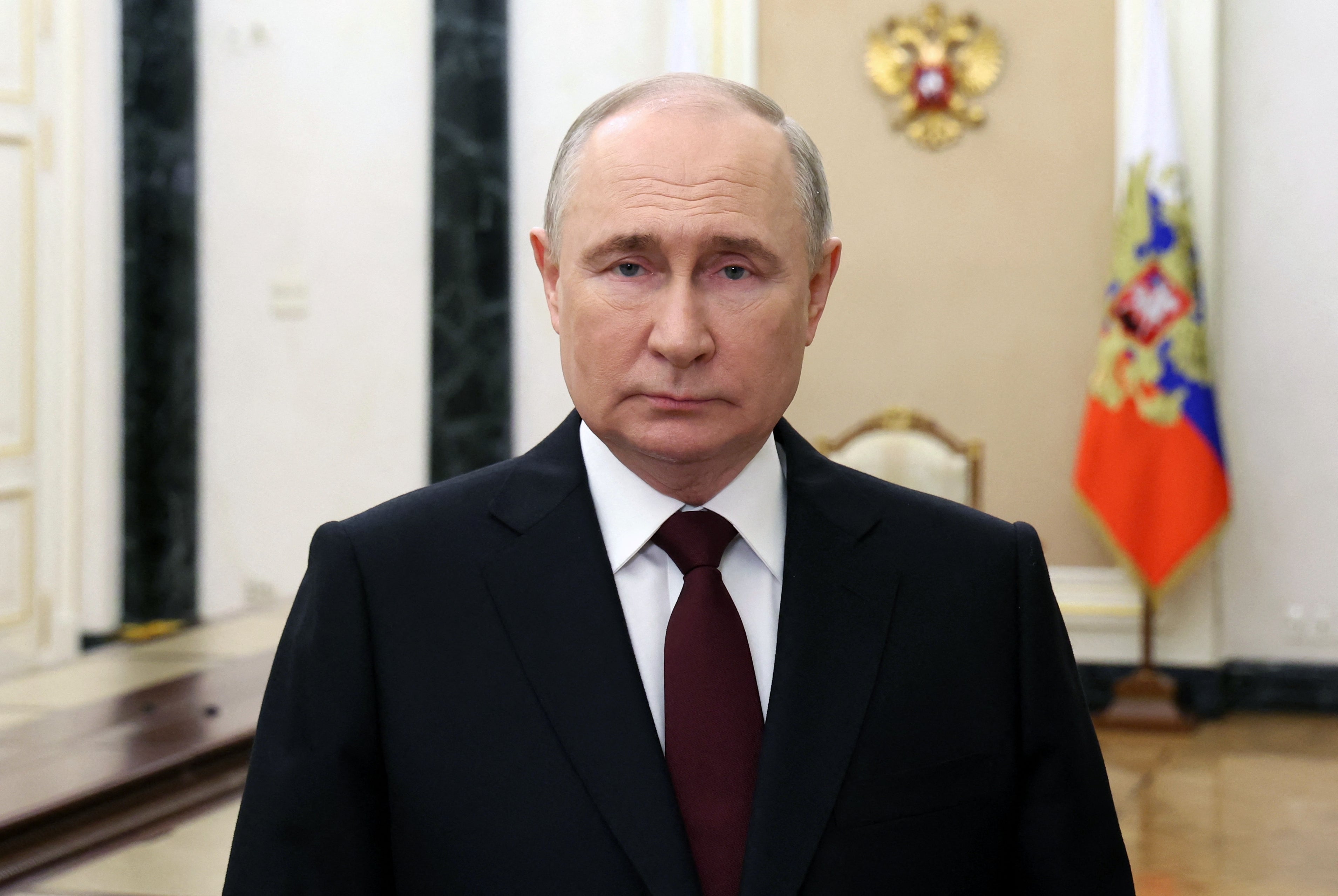War crime arrest warrants issued for top Russian commanders Sergei Kobylash and Viktor Sokolov
An arrest warrant has previously been issued for Vladimir Putin

Your support helps us to tell the story
From reproductive rights to climate change to Big Tech, The Independent is on the ground when the story is developing. Whether it's investigating the financials of Elon Musk's pro-Trump PAC or producing our latest documentary, 'The A Word', which shines a light on the American women fighting for reproductive rights, we know how important it is to parse out the facts from the messaging.
At such a critical moment in US history, we need reporters on the ground. Your donation allows us to keep sending journalists to speak to both sides of the story.
The Independent is trusted by Americans across the entire political spectrum. And unlike many other quality news outlets, we choose not to lock Americans out of our reporting and analysis with paywalls. We believe quality journalism should be available to everyone, paid for by those who can afford it.
Your support makes all the difference.The International Criminal Court (ICC) has issued arrest warrants for top Russian commanders Sergei Kobylash and Viktor Sokolov over alleged war crimes in Ukraine.
The ICC, based in The Hague, said there were reasonable grounds to believe that the two suspects were responsible for “missile strikes carried out by the forces under their command against the Ukrainian electric infrastructure from at least 10 October 2022 until at least 9 March 2023”.
This is the second set of warrants for the arrest of Russian officials related to the war in Ukraine.
In March last year the ICC issued warrants for the arrest of President Vladimir Putin and Children’s Commissioner Maria Lvova-Belova on war crimes charges related to the abduction of Ukrainian children. The Kremlin rejects the allegations.
ICC chief prosecutor, Karim Khan, said at the time that “many of these children, we allege, have since been given up for adoption in the Russian Federation” and that a Russian law change has made it easier for the children to be adopted by families.
“We must ensure that those responsible for alleged crimes are held accountable and that children are returned to their families and communities... we cannot allow children to be treated as if they are the spoils of war,” Mr Khan said.

Ms Lvova-Belova said she had “adopted” a child from the Ukrainian city of Mariupol, now under Russian control.
The ICC on Tuesday said the attacks on Ukraine’s electrical grid caused civilian harm and damage that would have been clearly excessive to any expected military advantage.
Ukraine’s prosecutors were already investigating possible war crimes after a winter campaign of air strikes on Ukrainian energy and utilities infrastructure.
Russia denies deliberately targeting civilian infrastructure in Ukraine, saying its attacks are all intended to reduce Kyiv’s ability to fight.
The Geneva conventions and additional protocols shaped by international courts say that parties involved in a military conflict must distinguish between “civilian objects and military objectives” and that attacks on civilian objects are forbidden.
That seems clear-cut, but some infrastructure owned and used by civilians can also be a military objective if they can make an effective contribution to military action or their destruction offers a definitive military advantage.
Experts have argued civilian power plants or railways could fall into this category.
Join our commenting forum
Join thought-provoking conversations, follow other Independent readers and see their replies
Comments